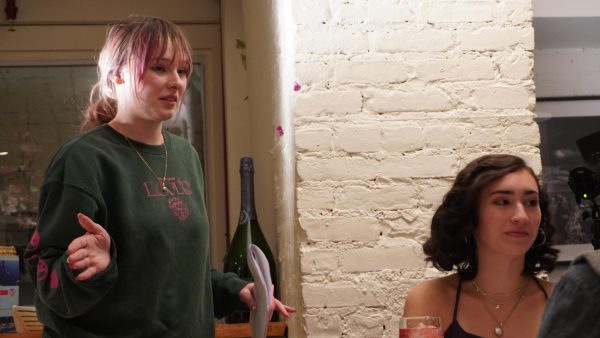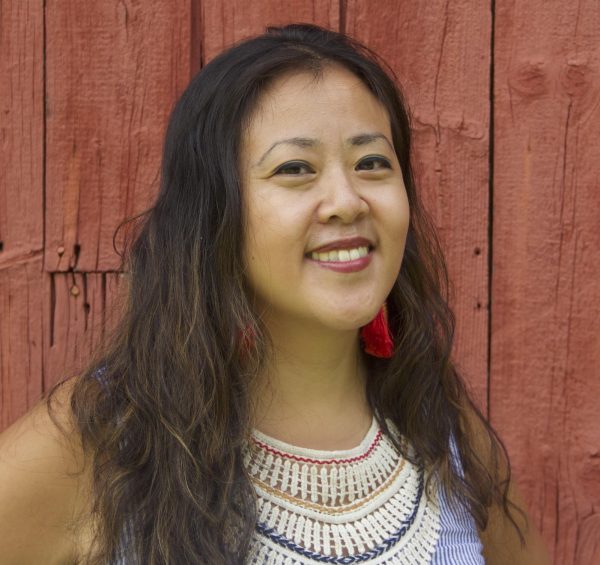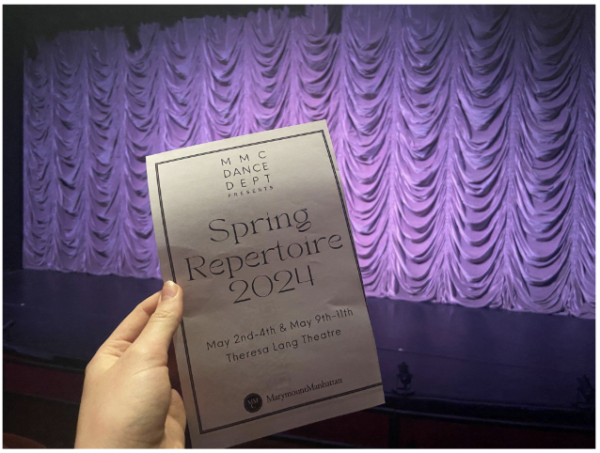Practice Safe Simulated Sex: The Art of Intimacy Direction
Reading Time: 5 minutesIn the spring of 2006, Katie Bradley, a graduate student in the movement department at Virginia Commonwealth University, witnessed the senior thesis piece of Tonia Sina who would a decade later become the Godmother of Intimacy. A Fiona Apple song played as the light bounced off of the intertwined bodies of the actors. An entire room full of movement and theatre majors witnessed history, and they did not even know it. Intimacy direction was such a new concept at the time that it being utilized to tell a full story shocked the students and faculty. Even in the theatre department, an entire piece dedicated to intimacy as an art form surpassed the limits regarding physical storytelling. “I just remember being in awe,” said Bradley.
Bradley’s awe and bewilderment reflected the lack of normalized intimacy choreography present within the arts prior to the #METOO movement. The #METOO movement revolutionized the rules surrounding behavior and fictionalized intimacy in Hollywood, Broadway, and all unions and institutions for the performing arts. In 2017 after the horrific accusations towards defamed Hollywood mogul Harvey Weinstein came out, many actors questioned their past direction regarding simulated sex, intimate moments, and nudity. According to The Hollywood Reporter, in a post-#METOO era countless stories from various decades have come out regarding “embarrassment, confusion, exploitation, and at times even assault” that Koenig 2 occurred when film and TV directors had full reign over portraying intimacy. Sets ran like machines regardless of the level of vulnerability an actor felt. No one appeared on set or in rehearsals to ensure that boundaries were being respected. In fact actors were not even allowed to have boundaries after they signed for a project. According to The Hollywood Reporter, it wasn’t until in 2018 that HBO became the first studio to require all of its projects to hire an intimacy coordinator. Many people in the industry had never even heard of this position, even though fight and stunt coordinators have been a common practice for any violent moments in productions for decades.
Prior to the #METOO movement, a certification and training program was already providing intimacy education despite the lack of mainstream studio interest. Years after Bradley saw Tonia Sinia’s senior thesis piece, Tonia Sina along with Alicia Rodis founded Intimacy Directors International (IDI) in 2015. While IDI no longer exists, it was taken over by Intimacy Directors and Coordinators (IDC) which rose to prominence following the ruling by SAGAFTRA and Actor’s Equity requiring standards for intimacy coordinators on all productions. Katie Bradley, an adjunct professor at Marymount Manhattan College, is currently finishing her recertification with IDC after completing the certification process with IDI. Koenig 3 From a young age, Bradley was drawn towards the arts and storytelling. Due to bad eyesight, dance became a major outlet for Bradley as a child. Tapping was her most beloved form of dancing due to the songs that went along with learning the steps. Katie wanted to pursue a career as a child star. “Well, I thought I was gonna be a legit Shirley Temple,” she said. However, her mother’s intervention stifled her dreams of being a Disney channel star.
Bradley’s passion for the arts persisted at Shenandoah University where she graduated with a BFA in Music Theatre in 2004. It was during the end of Bradley’s senior year though that she found her true calling. Instead of having a traditional senior showcase, Bradley put on a two person show in which she wasn’t just an actor. She had to find props, music, and set design. All of a sudden, she realized she wanted to work behind the table as well as pursue a career in acting. After having this discovery in her senior year, Katie had to find her next path. She decided to apply to VCU for graduate school for acting. It was in grad school that a professor suggested she become a movement major. Within the movement concentration, students learned how to choreograph fights, moments in acting, and dances. Bradley remembers fight direction being the major focus of the department back then. “It was there that I was opened up to a whole new world,” she explained.
While in graduate school, Bradley crossed paths with the Godmother of Intimacy Direction, Tonia Sina. Bradley encountered storytelling through intimacy and would remember Sina’s work for years to come. Several years after graduating Bradley instinctively reached out to Sina after seeing Facebook posts about changes in the industry. All of these circumstances led Bradley into the path of Intimacy training. Since Bradley is currently completing her certification Koenig 4 with IDC, she was able to entirely elaborate on the company’s curriculum. IDC’s certification for intimacy trainers contains four levels. The first level is focused on consent. It involves learning all the terminology that allows the intimacy directors to best communicate. The second level gets deeper into dealing with and processing emotional trauma. However, according to Bradley, intimacy direction does not include “becoming a therapist because we are not there for that.” The third level teaches the trainees methods on how to actually choreograph. The fourth level involves working a certain number of hours on sets while accompanied by a certified intimacy coordinator. Each level costs around $5,000. IDC curriculum also teaches a variety of different strategies to its trainees in order to make each intimacy director capable of working with any type of actor. All intimacy coordinators/directors are taught to work with everyone regardless of gender, sexual orientation, race, and ability. The curriculum attempts to create a space where everyone feels safe and protected. Bradley also states that this comprehensive training allows her to just “create stories with people’s bodies” regardless of the situation.
While the position of intimacy director is new, Bradley has plenty of experience in the field. Bradley feels that one of the biggest hurdles to tackle in this new industry is making sure that everyone in the room knows that intimacy directors/coordinators are not the “sex police.” The entire position was designed to facilitate nudity and sex scenes, but to do so in a way that makes everyone more comfortable. In fact shows like Bridgerton, Euphoria, and Sex Education are all shows that premiered post #METOO and employed intimacy coordinators to choreograph the many instances of intimate content. Bradley believes that entertainment will only continue to get steamier now that actors feel comfortable and safe. Bradley desires for every actor she works with to feel at ease. She believes that one of the primary functions of an intimacy coordinator is Koenig 5 “to be an advocate for the actor.” Providing empowerment for the actors she works with is endlessly rewarding for Bradley.
Despite facing pushback from directors, intimacy coordinators want to help bring life to the director’s vision. Bradley feels that “All intimacy directors are going up against battles every day because it is such a new thing.” Gone are the days when it was legal for directors to tell actors to just roll around, kiss, and take their clothes off. Bradley knows that by choreographing the intimacy prior to shooting or performing, intimacy coordinators are creating scenes that are as repeatable and specific as dance steps so no one is ever surprised in an intimate moment. Creating this new environment of consent will not be stopped by the disgruntled directors of the past. Bradley knows that Intimacy coordinators/directors are the future of the entertainment industry, and she hopes this new way of operating will spill into all venues.
Moving forward Bradley wishes for intimacy work to spread throughout Marymount Manhattan College. Bradley believes all departments should implement and foster environments with boundary work and consent. Bradley thinks many issues within school environments are solvable through stating boundaries as clearly as stating pronouns. Bradley looks forward to the day when no one feels left behind or violated in any way by art or education. Bradley knows that intimacy training just brings communities closer to that goal.





